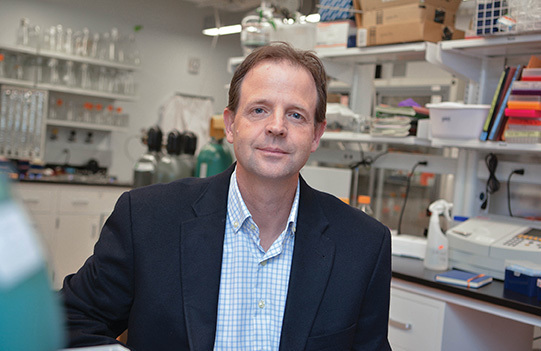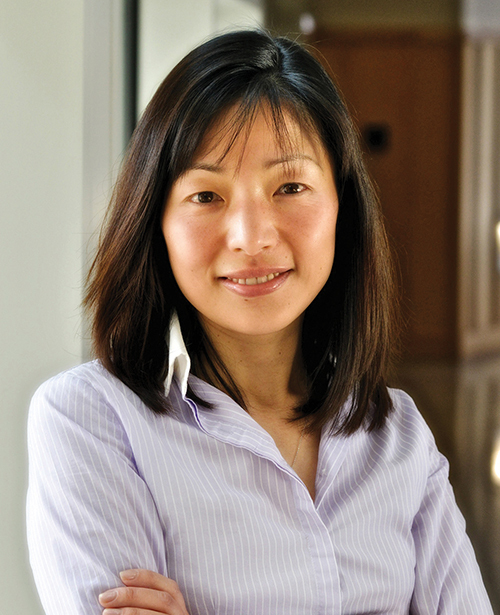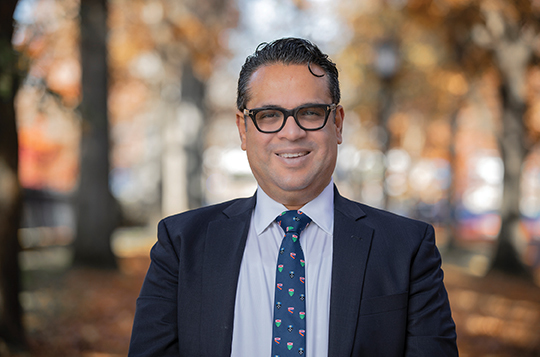
Michael Marsland

Michael Marsland

Kike Calvo

Kike Calvo

Dan Renzetti

Dan Renzetti
Remember the long, disturbing spring of 2020? First the news from Asia. Then the initial cases in America and Europe. Then deaths. And then the masks, the retreat to home for those who were able to work from home, the general fear—and the lack of knowledge. What was this airborne monster capable of? In my family, there were a few weeks in the early spring of 2020 when we wore gloves in order to carry in the groceries. We’d wrap up all the boxes, cartons, and produce in plastic bags, and keep them wrapped up for three days.
But scientists around the world stepped up. And the Yale researchers were heroic. At first, only a few dozen labs were permitted to start work on COVID, and the need for caution against spreading the viral enigma led many scientists to spend lonely nights in the laboratory. Over time, many more have joined them. The work has delivered some critical results. Here are a very few:
Jordan Peccia, a professor of chemical and environmental engineering, collaborated with scientists around the world on an effort to find early signs of infection in a given community. The fastest way to detect the presence of the virus: test the local sewage. The CDC has posted a page titled “National Wastewater Surveillance System” on its website, detailing why and how individual communities should test and report the presence of COVID in their waste.
Akiko Iwasaki is a professor of viral immunology whose lab has produced many discoveries. One of them is SalivaDirect™, a process for finding out whether COVID has traveled beyond its victims’ nasal passages and into their lungs. Iwasaki’s lab, partnering with assistant professor Caroline Johnson’s lab, also found a reason why COVID tends to affect men more violently than it affects women: our T-cells find and destroy infected cells, but men’s T-cells begin to disappear in their 30s and 40s, earlier and more rapidly than women’s. Meanwhile, Iwasaki is currently working on a vaccine that can be delivered via a nasal spray.
Saad Omer, head of the Yale Institute for Global Health, is a vaccinologist and infectious disease epidemiologist who has conducted studies in the United States, Guatemala, Kenya, Uganda, Ethiopia, India, Pakistan, Bangladesh, South Africa, and Australia. Listed among his projects: burial site surveillance in Pakistan to estimate COVID mortality; and testing five social media campaigns to find out how well they promote vaccination.
Many Yale scientists have also been explaining COVID news and delivering advice onscreen, on the radio, and in the papers. In early December, Omer published an op-ed in the New York Times titled “Biden’s Highly Selective Travel Ban Doesn’t Make Sense.” (The ban was imposed on people traveling from southern Africa, but Omicron had already been found in nations around the world.) Omer and his colleagues are so active that, even as I write this, a note about their latest project has popped up in my email: Yale will work with the Made to Save campaign to raise vaccination numbers in communities of color. The plan is to teach health care workers how to do a better job of explaining just why the vaccine is essential.
Albert Ko, the Raj and Indra Nooyi Professor of Public Health, is another expert so frequently quoted and interviewed in the press that he has had a chance to repeat, in many different ways, how vital it is to get vaccinated. He’s also a regular on the Connecticut news, explaining the ups and downs of the COVID spikes and troughs and the idiosyncrasies of the variants. Recently, he gave us some reassuring news on Fox61: “The vaccines—although they’re not one hundred percent protective against being infected and becoming mildly ill—do protect against severe disease and hospitalizations.”
With Omicron in the air (literally), it feels almost as if we’ve circled back to that frightening 2020 spring. But keep hanging on. Yale scientists are working on it.
 loading
loading
1 comment
-

George Huthsteiner '74 TD, 6:13pm January 18 2022 |  Flag as inappropriate
Flag as inappropriate
The comment period has expired.<> Yale's list of COVID heroes must include Alison P. Galvani, the Burnett and Stender Families Professor of Epidemiology at the Yale School of Public Health and the Director of the Center for Infectious Disease Modeling and Analysis(CIDMA). Per Tony Fauci,“She has made major contributions in our understanding of HIV/AIDS, Zika, Ebola, and influenza, and now most recently COVID-19.” <> She co-authored the analysis of US medical spending published in the Lancet in 2020 that became the scientific rationale for Bernie Sanders's advocacy of Medicare for All. She is the youngest faculty member in Yale School of Medicine's history to be appointed to a named professorship. Most awesome of all, is the mother of three young kids.